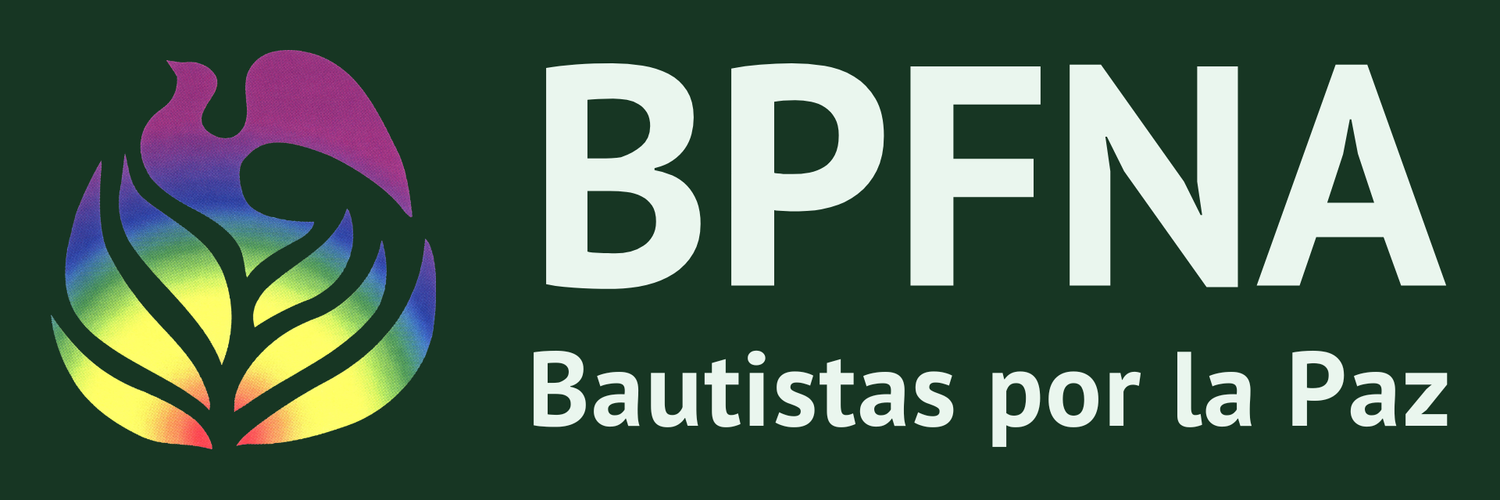Peace Camp
Peace Camp is BPFNA’s annual gathering where old friends gather and new relationships are nurtured. We engage topics of peace in justice in workshops and worship services. We hope you will join us!
| Dates | Location | Theme |
|---|---|---|
| June 30–July 5, 1986 | Green Lake, Wisconsin | Announcing the Reign of God |
July 6–11, 1987| Asheville, North Carolina |
Be of Good Cheer |
|
| July 4–9, 1988 | Atlanta, Georgia | Love Your Enemies |
| July 10–15, 1989 | Keuka Park, New York | Prisoners of Hope |
| July 2–7, 1990 | Ottawa, Ontario, Canada | Justice and Peace Will Embrace |
| July 1–6, 1991 | McMinnville, Oregon | Be Not Afraid |
| June 29–July 4, 1992 | Roanoke, Virginia | The Earth Is the Lord’s |
| July 26–31, 1993 | Birmingham, Alabama | Walk Together Children |
| July 4–9, 1994 | Granville, Ohio | We’ve Come This Far by Faith |
| July 10–15, 1995 | Redwood City, California | Fools in the Eyes of the World |
| July 8–13, 1996 | Waterloo, Ontario, Canada | And a Child Shall Lead |
| July 21–26, 1997 | Harrisonburg, Virginia | Disarming the Heart |
| July 27–August 1, 1998 | Richmond, Indiana | Proclaim Jubilee |
| July 19–24, 1999 | Vancouver, British Columbia, Canada | Building a Culture of Peace |
| July 10–15, 2000 | Winston-Salem, North Carolina | On Earth As It Is in Heaven |
| July 9–14, 2001 | Oberlin, Ohio | For Such a Time as This |
| July 22–27, 2002 | Wolfville, Nova Scotia, Canada | To Sing Among the Peoples |
| July 14–19, 2003 | Keuka Park, New York | With Such a Cloud of Witnesses |
| July 19–24, 2004 | Towson, Maryland | The Stones Will Cry Out |
| August 1–6, 2005 | McMinnville, Oregon | For the Healing of the Nations |
| July 10–15, 2006 | Atlanta, Georgia | Becoming the Beloved Community |
| July 23–28, 2007 | Berea, Kentucky | As the Powers Fall |
| July 14–19, 2008 | Ste. Anne de Bellevue, Quebec, Canada | The Way That Leads to Peace |
| July 20–25. 2009 | Ogden, Utah | When There Is Justice, Then Peace Will Come! |
| July 4–9, 2011 | Harrisonburg, Virginia | So You Must Forgive |
| July 31–August 3, 2012 | Northfield, Minnesota | The Dances of Universal Peace |
| 2014 | St. Catharines, Ontario, Canada | One Creation |
| July 6–11, 2015 | Harrisonburg, Virginia | No Longer Strangers: Crossing Borders for Peacemaking |
| June 27–July 2, 2016 | Cheyney, Pennsylvania | When Did We See You in Prison?: Breaking Social and Structural Injustice |
| July 17–22, 2017 | Misión Mazahua, Mexico | When Did We See You Naked?: Clothing Each Other with Hope |
| July 2–7, 2018 | Keuka Park, New York | Decentering Power & Privilege: Becoming a Peculiar People |
| July 15–20, 2019 | Cali, Colombia | Peace in Our Land: Toward a World without Violence |
| August 29, 2020 | Virtual | Beyond Barriers, People Move |
| July 20–August 28, 2021 | Virtual | Beyond Barriers: Soaring in the Spirit |
| August 19–27, 2022 | Virtual | A Time to Heal |
| June 26–30, 2023 | San Juan, Puerto Rico | Moving Mountains |
| July 15–19, 2024 | Mars Hill, North Carolina | Peace Rooted in Justice |
| July 14–19, 2025 | Mexico City, Mexico | Tearing Down Walls, Building Up Hope |

